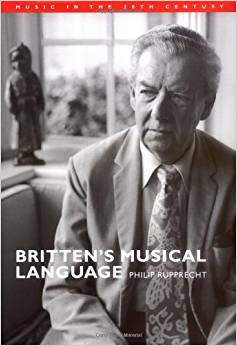
Britten’s Musical Language

著 者: Philip Rupprecht
出版社: Cambridge University Press
出版时间:2001
ISBN号:0-521-03103-6
页 数: 358页
索书号:J609.92/B9645
所在库室:锦江校区教参阅览室
内容简介:
Blending insights from linguistic and social theories of speech, ritual and narrative with music-analytic and historical criticism, Britten's Musical Language offers interesting perspectives on the composer's fusion of verbal and musical utterance in opera and song. It provides close interpretative studies of the major scores (including Peter Grimes, Billy Budd, The Turn of the Screw, War Requiem, Curlew River and Death in Venice) and explores Britten's ability to fashion complex and mysterious symbolic dramas from the interplay of texted song and a wordless discourse of motives and themes. Focusing on the performative and social basis of language, Philip Rupprecht replaces traditional notions of textual 'expression' in opera with the interpretation of topics such as the role of naming and hate speech in Peter Grimes; the disturbance of ritual certainty in the War Requiem; and the codes by which childish 'innocence' is enacted in The Turn of the Screw.
媒体推荐:
'Once one has opened the tough shell of the author's language there are pearls within.' International Record Review
'An important contribution to Britten scholarship.' Musical Times
'… clearly defined studies of aspects of one or two works … rich and fascinating cultural and aesthetic interpretations … in terms of the weight of existing scholarship and the interpretative challenges surrounding these subjects, their achievements seem more remarkable for the high standards they have now set.' Journal of the Royal Musical Association
作者简介:
Philip Rupprecht is Assistant Professor at Brooklyn College and the Graduate Center, City University of New York. He has written on Britten in a number of journals and is a contributor to The Cambridge Companion to Benjamin Britten (1999).
目录:
Acknowledgments;
1. Introduction: Britten's musical language;
2. Peter Grimes: the force of operatic utterance;
3. Motive and narrative in Billy Budd;
4. The Turn of the Screw: innocent performance;
5. Rituals: the War Requiem and Curlew River;
6. Subjectivity and perception in Death in Venice;
Notes;
Bibliography;
Index.